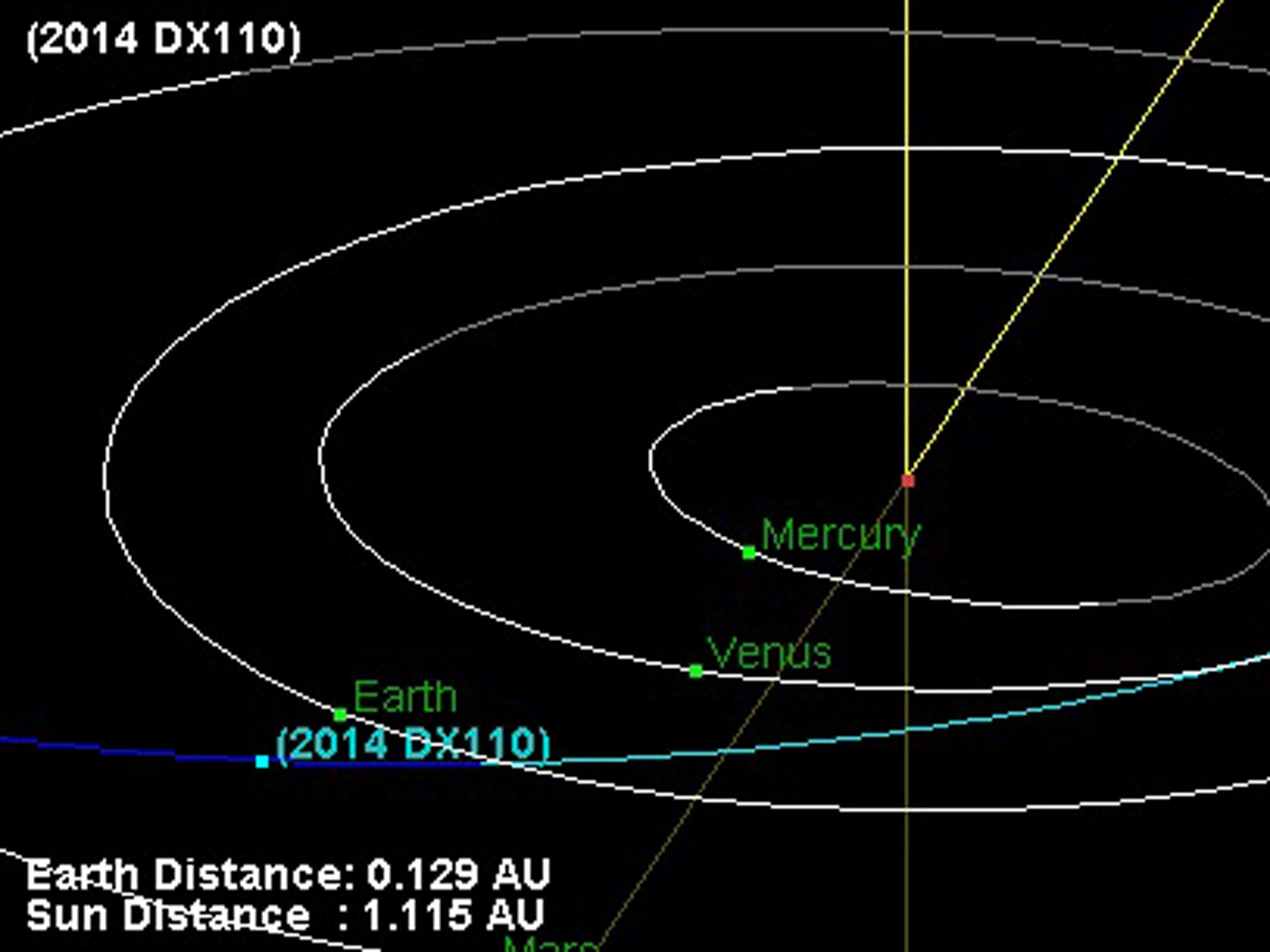Asteroid hurtles between the Earth and the Moon at 33,000mph
DX110 will make its closest approach when it reaches a distance of less than 217,000 miles from the Earth

Your support helps us to tell the story
From reproductive rights to climate change to Big Tech, The Independent is on the ground when the story is developing. Whether it's investigating the financials of Elon Musk's pro-Trump PAC or producing our latest documentary, 'The A Word', which shines a light on the American women fighting for reproductive rights, we know how important it is to parse out the facts from the messaging.
At such a critical moment in US history, we need reporters on the ground. Your donation allows us to keep sending journalists to speak to both sides of the story.
The Independent is trusted by Americans across the entire political spectrum. And unlike many other quality news outlets, we choose not to lock Americans out of our reporting and analysis with paywalls. We believe quality journalism should be available to everyone, paid for by those who can afford it.
Your support makes all the difference.An asteroid travelling at 33,000 mph came closer than the Moon when it hurtles past Earth on Wednesday night.
The newly discovered asteroid 2014 DX110 is expected to make its closest approach when it reaches a distance of less than 217,000 miles from the Earth at about 9.07pm. The moon is on average 238,000 miles from Earth.
The 98-foot-wide Apollo class asteroid will not collide with Earth, according to scientists, but will provide excellent views for those with a good telescope.
The Virtual Telescope Project and Slooh will be providing a live, online event sharing real-time images of the asteroid from 8.30pm tonight.
Relatively close approaches such as this occur frequently, although the DX110 is extra close.
Last month the asteroid 2000 EM26 streaked past Earth at 27, 000 mph, a year after a ten-ton meteor entered the earth’s atmosphere at 33,000mph, exploding over Chelyabinsk, 900 milles east of Moscow.
Join our commenting forum
Join thought-provoking conversations, follow other Independent readers and see their replies
Comments